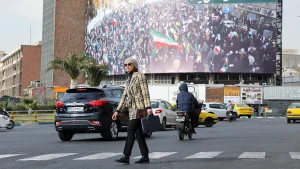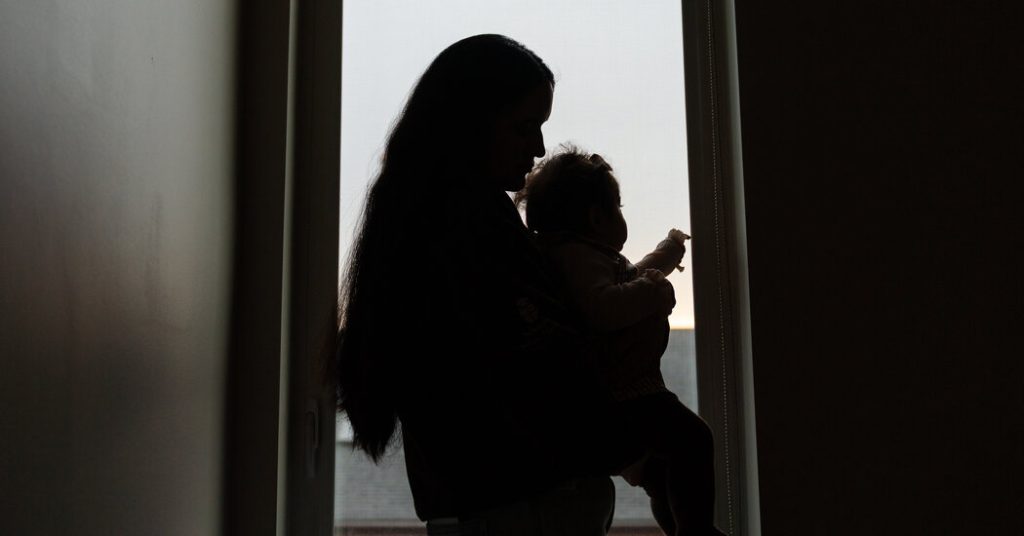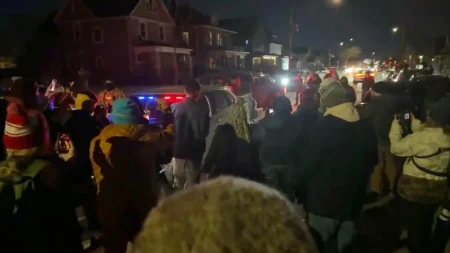The principle of birthright citizenship, enshrined in the 14th Amendment of the U.S. Constitution for over a century and a half, guarantees citizenship to anyone born within the nation’s borders. This principle, originally intended to safeguard the citizenship of formerly enslaved Black people after the Civil War, has become a subject of intense debate in recent years, particularly regarding children born to undocumented immigrants. The core issue revolves around differing interpretations of the 14th Amendment, with some arguing that it does not apply to those not "subject to the jurisdiction" of the United States, while others maintain that it covers virtually all individuals born on American soil, regardless of parental status. This legal and political battle has left many expectant undocumented mothers in a state of anxiety and uncertainty about their children’s future.
The debate surrounding birthright citizenship came to a head with President Trump’s executive order seeking to end the practice for children born to undocumented immigrants. This order, which has faced immediate legal challenges, highlights the deep divisions in American society over immigration and the meaning of citizenship. While the legal battle plays out, undocumented pregnant women like Maria Calderas find themselves in a precarious situation, unsure if their children will be afforded the same rights and opportunities as those born before the order. For them, the Constitution, a document meant to guarantee equal rights, offers little solace in the face of this looming threat. The executive order directs federal agencies to deny citizenship documentation to children born to undocumented mothers or those on temporary visas, unless the father is a citizen or green card holder. This effectively attempts to redefine the 14th Amendment, creating a class of children born in the U.S. but denied the rights and privileges of citizenship.
The potential consequences of ending birthright citizenship are far-reaching and could create a permanent underclass of individuals denied fundamental rights and opportunities. Children born to undocumented immigrants could face barriers to education, healthcare, employment, and political participation. They could be denied driver’s licenses, in-state tuition rates, and the right to serve in the military. This would not only impact the individuals themselves but also have broader societal implications, potentially creating a marginalized population vulnerable to exploitation and discrimination. The stories of undocumented mothers like Andrea Chavez, who gave birth before the executive order, and Maria Calderas, who is expecting, highlight the human cost of this policy debate. Ms. Chavez’s daughter, Ivana, is a U.S. citizen with all the accompanying rights and opportunities, while Ms. Calderas’s unborn child faces an uncertain future.
The legal arguments surrounding birthright citizenship center on the interpretation of the 14th Amendment’s Citizenship Clause. While the Supreme Court’s 1898 ruling in United States v. Wong Kim Ark affirmed the citizenship of a child born to Chinese immigrants, the current debate hinges on whether undocumented immigrants are considered "subject to the jurisdiction" of the United States. Opponents of birthright citizenship argue that undocumented individuals are not subject to U.S. jurisdiction and therefore their children should not automatically become citizens. Proponents, however, contend that the 14th Amendment’s language is clear and inclusive, encompassing all individuals born within U.S. territory, regardless of parental status. This legal battle is likely to continue for years, with the Supreme Court ultimately deciding the fate of birthright citizenship in the United States.
The debate surrounding birthright citizenship extends beyond the legal realm and touches upon deeply held beliefs about national identity, immigration, and the social fabric of the nation. Proponents of ending birthright citizenship often argue that it incentivizes illegal immigration and creates a drain on public resources. They use the term "anchor babies" to describe children born to undocumented immigrants, implying that they are used to secure benefits and legal status for their families. However, the reality is much more complex. While U.S.-born children can sponsor their parents for green cards when they turn 21, the process is incredibly difficult and often requires the parents to return to their home country for years, a risk many are unwilling to take.
The United States is not unique in its practice of birthright citizenship. At least 30 countries around the world, including Canada and most countries in the Americas, grant citizenship based on birth within their borders. However, several nations, including some in Europe, have stricter rules and do not automatically grant citizenship to children born to non-citizens. This global perspective highlights the diverse approaches to citizenship and the ongoing debate about how best to define national belonging in an increasingly interconnected world. The stories of undocumented women highlight the human impact of this policy debate and the anxiety and uncertainty they face regarding their children’s futures. While the legal battles unfold, the lives of these families hang in the balance.











